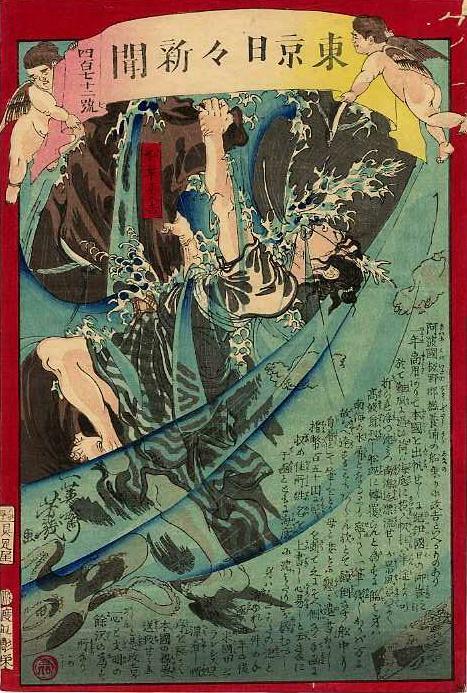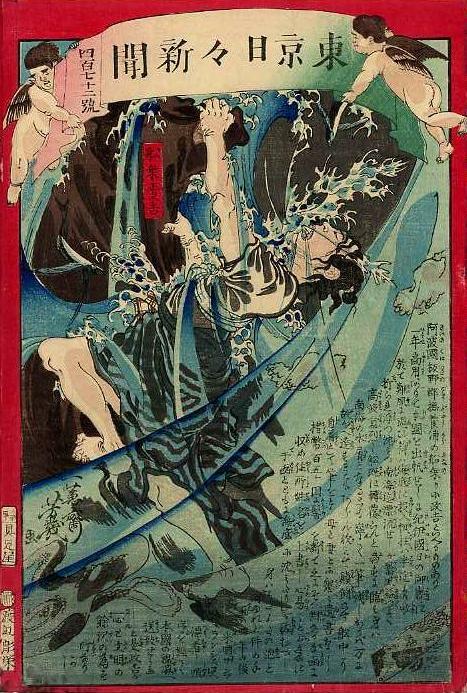
|
Gusokuya edition
Yosha Bunko
|
|

|
Gusokuya edition
Yosha Bunko
|
|
Tokyo nichinichi shinbun
No. 472
Circa 1873-9 (1874-08?)
Sailor writes will
Story translation (partial)
"Sailor Masakichi" [name on red cartouche] of Buyoura, an inlet on the coast of Itano district of Awa province, now part of Tokushima prefecture, set out on a commercial boat that would take him away from home for a year. Near point Hinomisaki in Kiino province, now part of Wakayama prefecture, the boat met with a gale and lost its mast. While the boat drifted south, Masakichi wrote a will to his mother and wife, leaving them 150 yen, and put it in a box with their name and address on it. He sank with the box to the bottom of the sea, and vanished with the bubbles on the water. Four years later, the box drifted to "San Francisco" in America, from which it was sent to his relatives at home.
Arindo
[Translated by William Wetherall]
Commentary
"San Francisco" in America reflects 米國「サンフランシスコ」(Mekoku "Sanfuranshisuko"). 米国 is now read "Beikoku". At the time, though, 米 was used in Japanese to transliterate "me" as in "Amerika" (亜米利加) for "America" and "Meriken" (米利堅) for "American".
San Francisco is still written this way in kanakana. Some contemporary Japanese sources called the city 桑港 (J. Sōkō, C. Sānggăng) -- which, like 米国 (J. Mekoku, Meikoku, Beikoku, C. Mĭgúo) and 美国 (J. Mikoku, Bikoku, C. Mĕigúo), was adopted from China, where foreign place names were generally written with two graphs -- the first representing the name of the place (America, San Francisco), the second the kind of place (country, harbor).
|